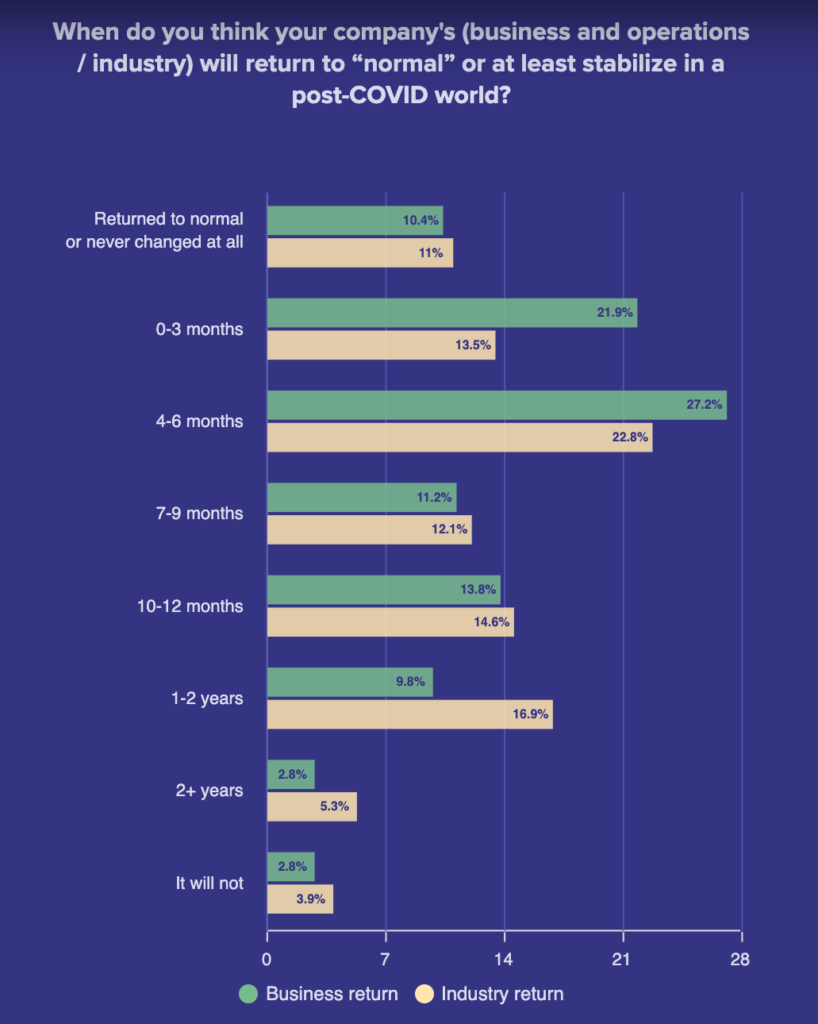Along with the severe health and humanitarian crisis caused by the coronavirus pandemic, executives around the world face enormous business challenges: the collapse of customer demand, significant regulatory modification, supply chain interruptions, unemployment, economic recession, and increased uncertainty. And like the health and humanitarian sides of the crisis, the business side needs ways to recover.
But now that numbers are stabilized and certain countries make the move toward a more normal way of life, businesses are preparing to reopen their doors.

Moving forward from a crisis, a company that invests time and energy into considering upcoming risks and determining the right actions for each is likely to turn potential surprises into strategic opportunities.
In an after action review, organizations analyse how they performed during a crisis response. Collecting data and insights from lessons learned can help businesses recover, and help leaders identify and prioritise actionable areas for improvement.
51% of organizations established an after action review process prior to the pandemic.
Organisations that have experienced a major disruption recognize that no matter how effective their response, they can always do better.
The private sector has already begun to respond to the crisis- in sectors such as digital infrastructure, trade, power, and tourism, and with methods that cut across sectors, such as inclusive business models, disruptive technologies, social bonds, and private equity. This proves that businesses can play a vital role in amplifying the public and humanitarian response to the crisis, while supporting recovery and driving strategic growth going forward, and setting the stage for “building back better” post crisis.
Some companies and industries have been particularly hard hit, and it has been a tumultuous time – among the most turbulent of many leaders’ careers to date. Beyond government instructions, both companies and leaders are now trying to decide on the best actions to take. In that context, I hope that insights from the actions of some of the most proactive company responses will be helpful.

In contrast to the financial crisis of 2008, the actions that companies take at this pivotal time are important not just to their economic survival, but also to the health and safety of their employees and others in their communities – this is first and foremost a health and humanitarian crisis. Some companies are moving more quickly and more decisively than others, but generally the more proactive companies I’ve seen are taking a set of common actions. This is by no means an exhaustive list or meant to replace a thorough analysis of a company’s particular situation. The shared behavior I have seen across companies, industries, and leaders include:
- Protect your employees
- Creating a cross- functional COVID-19 response team
- Stabilize a supply chain
- Communicate with your customers
- Demonstrate purpose
When we dissect the “business return to normal” responses by senior- level positions versus entry/mid-level positions, senior-level workers projected a longer road to recovery than their entry/mid-level counterparts. They were also more likely to say their business had already gone back to normal or hadn’t been affected in any way.
But it’s interesting to note that nearly twice as many senior- level as entry/mid-level employees think their business has already returned to normalcy.

Overall, a very small percentage of respondents across the world think it won’t return to normalcy or take longer than two years to do so. The short interpretation of this is that most respondents do think there’s an end date to the COVID-19 crisis and its impact on business and industry. It’s just a matter of when.




